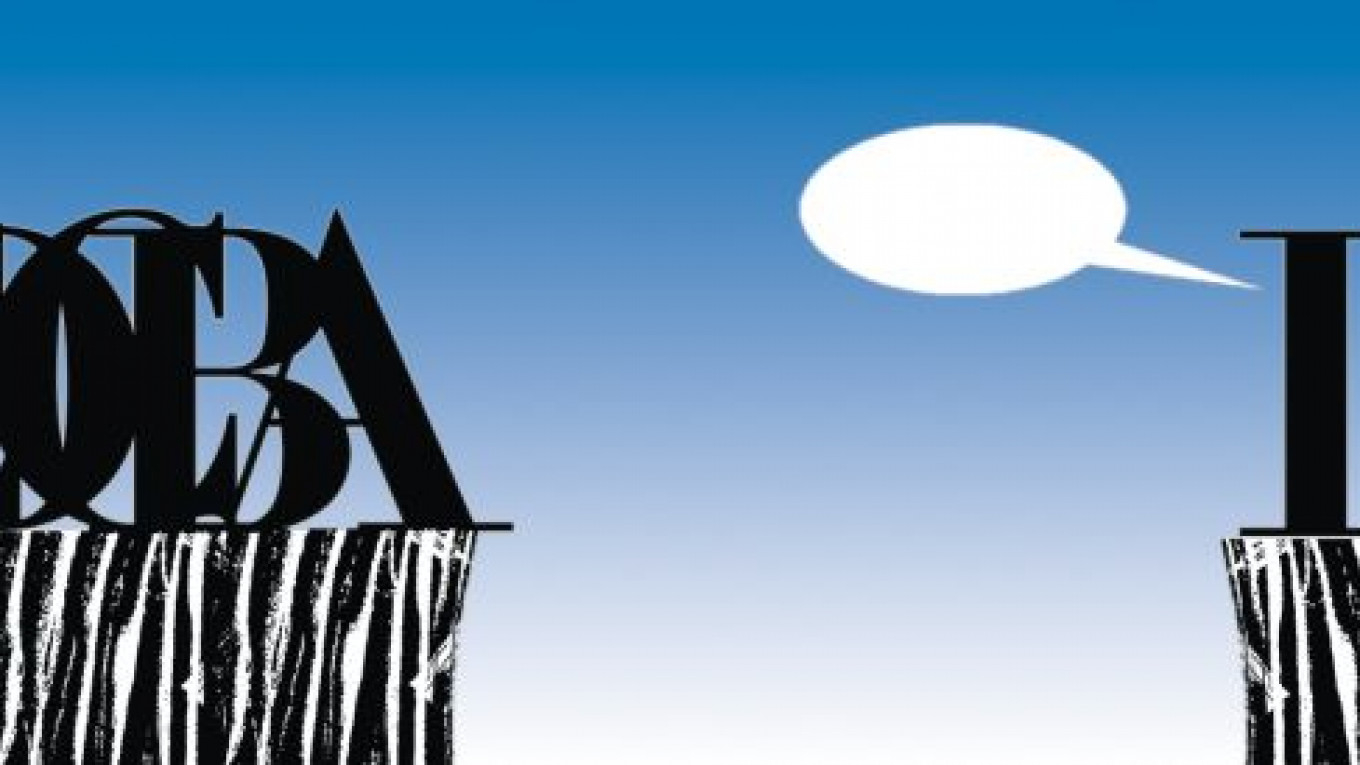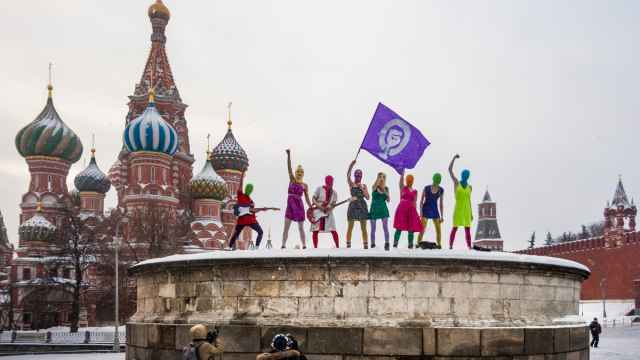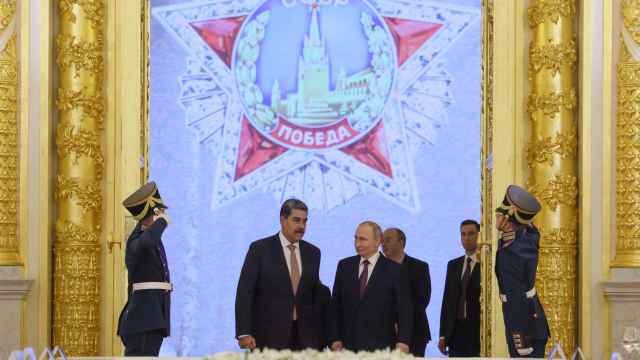The Iranian people have spoken, and their voice has been heard. More than 70 percent of eligible voters turned out to elect the most moderate of the eight presidential candidates approved by the Guardian Council, the body that, among other things, vets candidates for public office. Hassan Rouhani's unexpected first-round victory could open doors, both for diplomacy and for Iran's sanctions-ravaged economy.
This opening is important, but the potential for change that comes with Rouhani's victory is by no means limitless or certain. After all, Iran's president does not stand alone at the head of his country. Still, the election's outcome is a strong and hopeful signal, and Iran's international negotiating partners must pay proper attention and react in kind.
The mood in Tehran this weekend could not have been more different from the last election in 2009. In Iran, as elsewhere, the street is the country's best social barometer, and Iran's 75 million inhabitants — frustrated with sky-high inflation and economic hardship — saw reason to celebrate. After hand-picking the eight candidates from among almost 700 who sought to run — notably discarding reformist former President Akbar Hashemi Rafsanjani and President Mahmoud Ahmadinejad's protege, Esfandiar Mashaei — Supreme Leader Ayatollah Ali Hosseini Khamenei carefully allowed his country to speak.
The shape of Rouhani's victory is important. With 18.6 million of the 36.7 million votes cast, Iran's former chief nuclear negotiator defeated the six conservative candidates decisively. But he was far from being a frontrunner at the start. Many were convinced that Saeed Jalili, Iran's current chief nuclear negotiator, would win, consolidating Khamenei's hardline rule across the government.
But the centrist-reformist axis swung into action with pinpoint timing. In the week before the vote, both former President Mohammad Khatami and Rafsanjani publicly endorsed Rouhani. Three days before the election, the only other candidate in the moderate camp, Mohammad Reza Aref, dropped out of the race at Khatami's request. With the centrist and reformist camps united behind him, Rouhani surged to victory.
In the presidential debates, which I followed closely, Rouhani — himself a cleric — advocated a rebalancing of international relations and better economic management at home. With their vote, Iranians sent a strong message of support for that pragmatic agenda, overwhelmingly rejecting Ahmadinejad's policy of resistance and giving priority to restoring the economy over the pursuit of national glory.
In his post-election news conference, Rouhani reiterated his promise to recalibrate Iran's relations with the world. He promised greater openness and to repair the country's international standing, offering greater nuclear transparency to restore global trust.
Clearly, on the nuclear issue a return to the situation in 2003 is impossible. The offer that was on the table when I last sat across from Rouhani is no longer available. But with his victory, Iran has taken a step forward. It is now up to its negotiating partners to recognize that this is the best chance for diplomatic progress in at least four years and to make a similar move.
Obviously, it would be senseless to forget that the supreme leader, Ayatollah Khamenei, remains firmly in control of the nuclear issue. But by accepting Rouhani's victory, Khamenei may have sent a hint, if not a clear signal, that a change of course may be afoot.
But it remains to be seen how this would be translated into practice. The true question is how much leeway Khamenei will grant Rouhani, who, like any leader, will be tugged from many sides in his foreign policy endeavors. Particularly on the nuclear issue, which, for Iranian diplomacy, dominates most others, Rouhani must walk a political tightrope.
Slowly but surely, lines of communication — between Iran and the U.S. in particular — must be re-established. But a window has opened for both sides. Through careful diplomacy and precisely measured incentives, some rapprochement is feasible. As we know, such an opportunity is rare, and it must be seized, given the peril that the nuclear issue poses in Iran's incendiary neighborhood.
But there is a further international question that cannot go unasked, concerning the role of Iran's regional proxies. Though Rouhani will not have sole decision-making power on this issue, he will have to face it squarely if his plan is truly to recalibrate Iran's international relations.
The questions that Rouhani must answer are: What is Iran's vocation? Is it willing to act as a responsible regional actor, taking its place in negotiations on the serious problems in its neighborhood? Or will it continue to pursue its interests through its violent, destabilizing proxies in Lebanon, Iraq and Syria?
I know Rouhani to be a rational and reasonable man, and I am hopeful that meaningful international dialogue can be started. Though efforts to chart a new diplomatic path will meet opposition and resistance from hard-liners at home, the international community should trust the Iranian people and listen to the message that they have sent.
It is time to send a message back by opening constructive, incentive-based channels of communication that enable the global community to achieve a safe resolution of the nuclear issue — one that enables Iran's leaders to focus on the economic recovery and growth that their people demand.
Javier Solana was EU high representative for foreign and security policy and secretary-general of NATO. He is currently president of the ESADE Center for Global Economy and Geopolitics and Distinguished Fellow at the Brookings Institution. © Project Syndicate
A Message from The Moscow Times:
Dear readers,
We are facing unprecedented challenges. Russia's Prosecutor General's Office has designated The Moscow Times as an "undesirable" organization, criminalizing our work and putting our staff at risk of prosecution. This follows our earlier unjust labeling as a "foreign agent."
These actions are direct attempts to silence independent journalism in Russia. The authorities claim our work "discredits the decisions of the Russian leadership." We see things differently: we strive to provide accurate, unbiased reporting on Russia.
We, the journalists of The Moscow Times, refuse to be silenced. But to continue our work, we need your help.
Your support, no matter how small, makes a world of difference. If you can, please support us monthly starting from just $2. It's quick to set up, and every contribution makes a significant impact.
By supporting The Moscow Times, you're defending open, independent journalism in the face of repression. Thank you for standing with us.
Remind me later.






